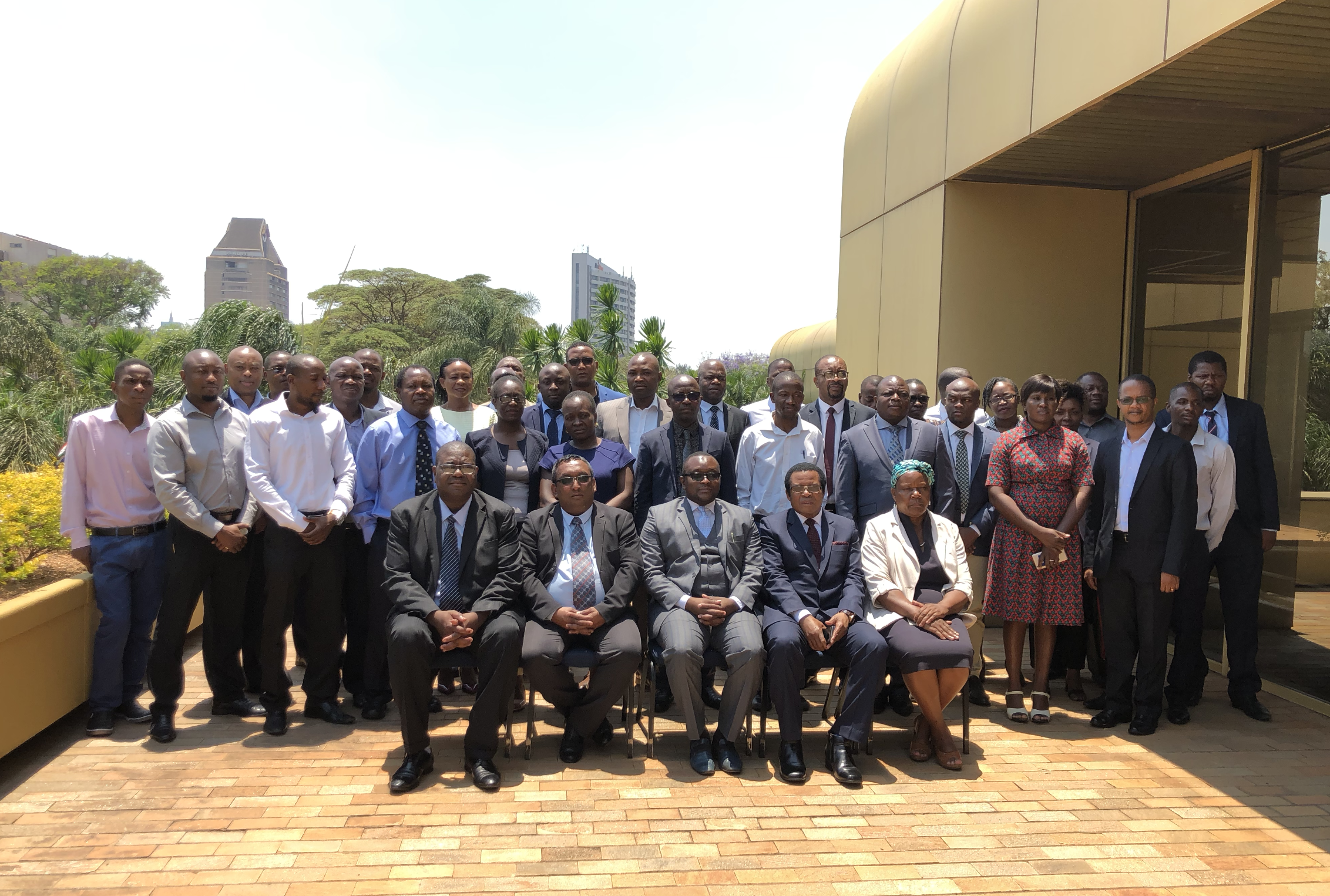The Southern African Development Community (SADC) is seeking to increase efficiency of regional traffic in an effort to address the slow and expensive exchange of African inter-country traffic via overseas hubs.
This emerged at the SADC Capacity Building Workshop on Regional Internet Exchange Points (RIXPs) / National Internet Exchange Points (NIXPs) Connectivity and Monitoring and Evaluation System for the SADC Regional Internet Exchange Point (RIXP) Project underway at the Rainbow Towers Hotel in Harare.
This comes hard on the heels of the adoption of the African Regional Action Plan on the Knowledge Economy (ARAPKE) framework, the Second Ordinary Session of the African Union Conference of Ministers in charge of Communication and Information Technologies (CITMC) requested the African Union Commission (AUC) and the United Nations Economic Commission for Africa (UNECA) to mobilise resources to accelerate the implementation of the selected ARAPKE flagship projects.
The African Union Executive Council Decision EX.CL/434 (XIII) further endorsed eleven flagship projects of the African Regional Action Plan on Knowledge Economy (ARAPKE), which included the African Internet Exchange System (AXIS) Project.
In his keynote address during the official opening of the workshop, Jenfan Muswere, the Deputy Minister of Information Communication Technology, Postal and Courier Services revealed that the Program on Infrastructure Development in Africa (PIDA) in its priority action plan also highlighted the need to establish Internet Exchange Points.
Furthermore, the Heads of State and Government of the African Union, meeting in the Fourteenth Ordinary Session of the AU Assembly, adopted a declaration that undertook to strengthen national programmes and regional cooperation for the development and interconnection of broadband infrastructure and the deployment of Regional Internet Exchange Points.
“In this regard, the African Internet Exchange System (AXIS) Project aims to keep Africa’s internet traffic local by providing capacity building and technical assistance to facilitate the establishment of National Internet Exchange Points (NIXPs) and Regional Internet Exchange Points (RIXPs) in Africa. Here, a Regional Internet Exchange Point (RIXP) is defined as: “An IXP located in a host country, where traffic between at least two other countries is exchanged via public or private peering”, the Minister said.
Increasing efficiency of regional traffic is an area that has this far not been addressed, resulting in a slow and expensive exchange of African inter-country traffic via overseas hubs. The African Internet Exchange System (AXIS) Project was meant to address this costly as well as inefficient way of handling inter-country exchange of Internet traffic by providing capacity building to Member States to facilitate the establishment of Regional Internet Exchange Points (RIXPs) and Regional Internet Carriers (RICs).
Africa is currently paying overseas carriers to exchange “local” (continental) traffic on its behalf. This is both a costly as well as an inefficient way of handling inter-country exchange of Internet traffic.
By setting up RIXPs, the exchange of the traffic generated in the region would remain in the region and hence reduce the traffic load on upstream providers, reduce cost, increase speed, and reduce latency for inter-country exchange of traffic and enhance Internet development in the region. Lowering communications costs by facilitating the establishment of the African Internet Exchange System (AXIS) will also reduce the cost of financing trade and ultimately the price of the goods and services. Affordable and accessible bandwidth will encourage regional trade integration and new “think work” industries like Business Process Outsourcing (BPO) and call centers will emerge and create employment, reduce poverty and generate wealth.
The AXIS project provided 5 capacity building workshops on best practice and benefits of setting up RIXPs and RICs based on the 5 AU Geographical Regions (Southern, Eastern, Western, Northern and Central) in collaboration with the respective Regional Economic Communities (RECs) and Regional Regulatory Associations.
The Director-General of the Postal and Telecommunication Regulatory Authority of Zimbabwe, Dr. Gift Machengete said if local content were to kept local and regional content, the cost of data would drastically fall, thereby saving countries in the SADC region a lot of money.
He revealed that the International Telecommunications Union (ITU) in its ICTs for Sustainable Goals Report for 2017 indicates that “Building core infrastructure such as Internet Exchange Points (IXPs) in all countries is essential in lowering the cost of using the internet.” This would see more people using the internet in least developed countries, land locked developing countries and small island developing states, where internet access and use is very low.
“It is for these fundamental reasons that Zimbabwe is happy and honoured to be hosting this SADC Capacity Building Workshop on National and Regional IXP Connectivity, which also incorporates capacity building for those who will be seized with the Monitoring and Evaluation of the SADC Regional IXP Project,” Dr. Machengete said.






